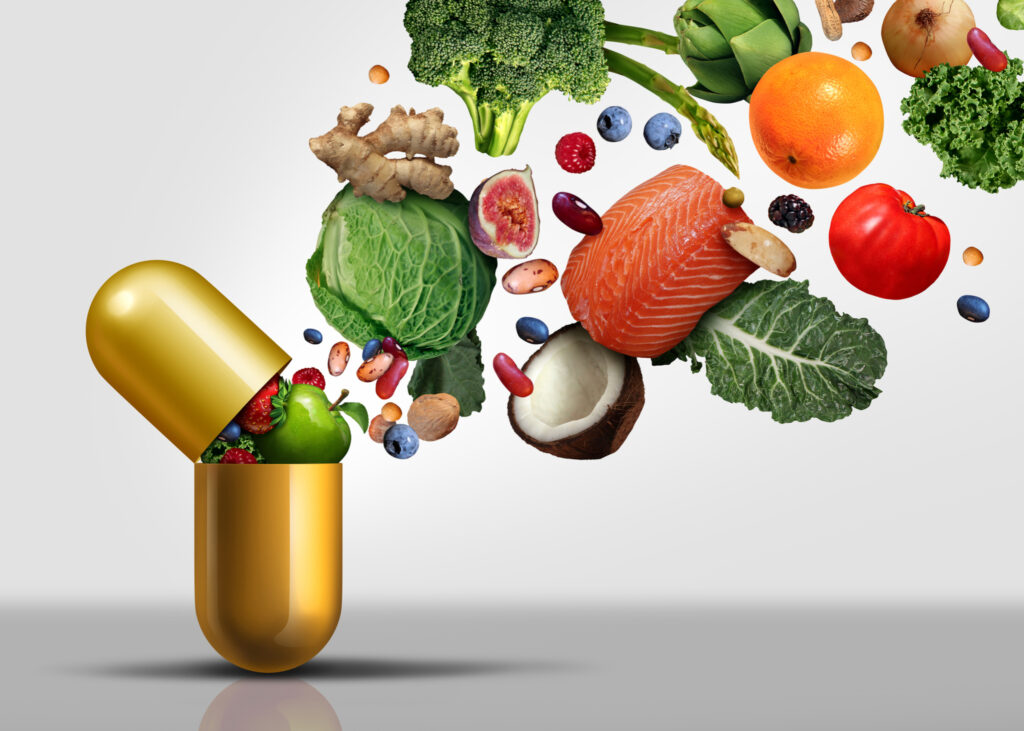Fasts aren’t perpetual; there comes a time when you reintroduce foods into your routine, thus concluding your fast.
It’s crucial to do this mindfully, as certain foods are preferable to others.
Moreover, some foods, beverages, and even supplements might inadvertently disrupt your fast, while others have minimal impact.
This article delves into which foods, beverages, and supplements are less likely to affect fasting periods and which are optimal when breaking a fast.
What is intermittent fasting?
Intermittent fasting is an eating pattern that oscillates between eating and either not eating or consuming minimal calories. It prioritises when you eat over what you eat.
Despite its recent surge in popularity, intermittent fasting isn’t novel. Throughout history, people have engaged in fasting periods for spiritual, health, or survival reasons (1Trusted Source).
Intermittent fasting aims not only to restrict calories but also to enable your body to focus on maintenance and recovery rather than digestion.
Many fasting routines involve regular 12- to 16-hour fasting windows each day, while others entail fasting for 24 or 48 hours once or twice a week.
During fasting, your body undergoes various metabolic changes. Over time, fasting prompts your body to enter ketosis, a state where fat is utilised for energy when carbohydrates are scarce (2Trusted Source, 3Trusted Source, 4Trusted Source).
Foods you can consume while fasting
By definition, fasting entails refraining from food consumption. Nevertheless, it’s possible to consume certain foods and beverages while still reaping the benefits of fasting.
Some experts suggest that as long as you keep your carbohydrate intake below 50 grams per day during a fast, you can sustain ketosis (13Trusted Source).
Water. Plain or carbonated water contains no calories and helps keep you hydrated during fasting. Coffee and tea. It’s advisable to consume these without added sugar, milk, or cream. However, some individuals find that adding small amounts of milk or fat can alleviate hunger. Diluted apple cider vinegar. Drinking 1–2 teaspoons (5–10 ml) of apple cider vinegar mixed into water might aid in hydration and prevent cravings during a fast. Healthy fats. Some people incorporate coffee containing MCT oil, ghee, coconut oil, or butter into their fasts. While oil technically breaks a fast, it won’t disrupt ketosis and can satiate hunger between meals. Bone broth. This nutrient-rich beverage can help replenish lost electrolytes during prolonged periods of only consuming water. It’s important to note that foods and beverages containing any calories — such as bone broth and the healthy fats listed above — technically break your fast.
Nevertheless, small quantities of these low-carb, high-fat, moderate-protein foods won’t halt your body’s ketosis (13Trusted Source).
How supplements impact fasting
It’s unlikely to develop nutrient deficiencies while fasting, but this depends on the restrictiveness and duration of your fast.
Some individuals opt to take supplements while fasting to ensure adequate intake of vitamins and minerals. Frequent fasting could potentially lead to nutrient deficiencies if your diet is already lacking in essential nutrients (14Trusted Source).
If you choose to supplement while fasting, it’s crucial to know which supplements might disrupt your fast. This knowledge can help you decide whether to take them with a meal or during your fasting period.
What to consume when breaking your fast
Gentle foods for breaking a fast When you’re ready to end your fast, it’s advisable to do so gradually. Towards the end of your fast, consider introducing small portions of easily digestible foods to avoid overwhelming your digestive system.
Breaking your fast with foods high in fat, sugar, or fibre can be challenging for your body to process, potentially leading to bloating and discomfort.
Foods and drinks that might be particularly taxing on your system after a fast include greasy cheeseburgers, slices of cake, or sodas. Even high-fibre raw produce, nuts, and seeds may prove difficult to digest.
Conversely, nutrient-dense foods that are easy to digest and contain a moderate amount of protein and healthy fats can gently end your fast.
Here are a few examples of what to consume when breaking your fast:
Smoothies. Blended drinks can be gentler on your system as they contain less fibre than whole, raw fruits and vegetables. Dried fruits. Dates are a concentrated source of nutrients commonly used to break fasts in Saudi Arabia. Apricots and raisins may have similar effects (21Trusted Source). Soups. Soups containing protein and easily digestible carbs, such as lentils, tofu, or pasta, can gently end a fast. Avoid soups made with heavy cream or a large amount of high-fibre, raw vegetables. Vegetables. Soft, starchy vegetables like potatoes can be good options when ending a fast. Fermented foods. Consider unsweetened yogurt or kefir. Healthy fats. Foods like eggs or avocados can serve as excellent first foods after a fast. Ending your fast with easily tolerated, healthy foods can help replenish important nutrients and electrolytes while gradually reintroducing food into your diet.
Once you can tolerate gentler foods, reintroduce other healthy foods such as whole grains, beans, vegetables, nuts, seeds, meat, poultry, and fish, and return to normal eating habits.
Be mindful of overeating It’s easy to overindulge between fasting periods.
Although fasting prioritises when you eat over what you eat, it’s not an excuse to consume unhealthy foods.
Overeating and consuming junk food between fasting periods can negate the health benefits of fasting. Instead, opt for minimally processed, whole foods as much as possible for the greatest overall health benefits.
In conclusion
When fasting, it’s important to be mindful of which foods and supplements might disrupt your fast. This awareness allows you to make informed decisions about whether to consume them during or between fasting periods.
During fasting, opt for calorie-free beverages and supplements, if any.
Some individuals choose to consume small quantities of certain foods to curb cravings, which may break their fast but still maintain ketosis.
When you’re ready to end a fast, focus on easily tolerated foods that aren’t high in sugar, fat, fibre, or complex carbohydrates, as these may be difficult to digest.

